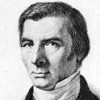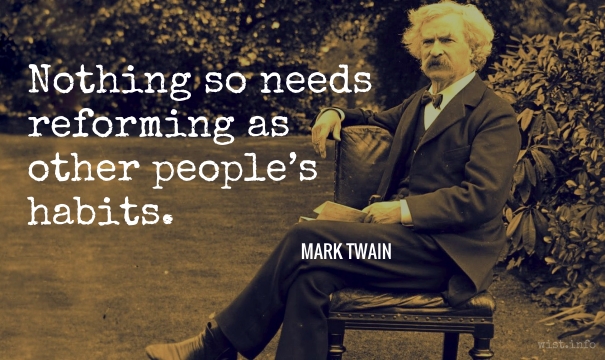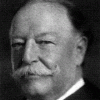Since the natural tendencies of mankind are so bad that it is not safe to allow them liberty, how comes it to pass that the tendencies of organizers are always good? Do not the legislators and their agents form a part of the human race? Do they consider that they are composed of different materials from the rest of mankind? They say that society, when left to itself, rushes to inevitable destruction, because its instincts are perverse. They presume to stop it in its downward course, and to give it a better direction. They have, therefore, received from heaven, intelligence and virtues that place them beyond and above mankind: let them show their title to this superiority.
Frédéric Bastiat (1801-1850) French philosopher, economist, politician
The Law (1850)
(Source)
Alt. trans.: "If the natural tendencies of mankind are so bad that it is not safe to permit people to be free, how is it that the tendencies of these organizers are always good? Do not the legislators and their appointed agents also belong to the human race? Or do they believe that they themselves are made of a finer clay than the rest of mankind? The organizers maintain that society, when left undirected, rushes headlong to its inevitable destruction because the instincts of the people are so perverse. The legislators claim to stop this suicidal course and to give it a saner direction. Apparently, then, the legislators and the organizers have received from Heaven an intelligence and virtue that place them beyond and above mankind; it so, let them show their titles to this superiority." [Source]
Quotations about:
reformer
Note not all quotations have been tagged, so Search may find additional quotes on this topic.
No tendency is quite so strong in human nature as the desire to lay down rules of conduct for other people.
Nations, like individuals, wish to enjoy a fair reputation. It is therefore desireable for us that the slanders on our country, disseminated by hired or prejudiced travellers, should be corrected. But politics, like religion, hold up the torches of martyrdom to the reformers of error.
Thomas Jefferson (1743-1826) American political philosopher, polymath, statesman, US President (1801-09)
Letter to James Ogilvie (4 Aug 1811)
(Source)
The best reformers the world haz ever seen are thoze who commense on themselves.
[The best reformers the world has ever seen are those who commence on themselves.]
The first thing that happens to men once they have had to give up any pleasure, whether for propriety’s sake, or from satiety, or for their health, is to condemn it in other people. Such behavior implies a sort of attachment to the very things one has just renounced: we want nobody else to enjoy the good things that we have lost; it is a feeling of jealousy.
[La première chose qui arrive aux hommes après avoir renoncé aux plaisirs, ou par bienséance, ou par lassitude, ou par régime, c’est de les condamner dans les autres. Il entre dans cette conduite une sorte d’attachement pour les choses mêmes que l’on vient de quitter; l’on aimerait qu’un bien qui n’est plus pour nous ne fût plus aussi pour le reste du monde: c’est un sentiment de jalousie.]
Jean de La Bruyère (1645-1696) French essayist, moralist
The Characters [Les Caractères], ch. 11 “Of Mankind [De l’Homme],” § 112 (11.112) (1688) [tr. Stewart (1970)]
(Source)
(Source (French)). Alternate translations:The first thing men do, when they have renounc'd pleasure, either out of decency, surfeit, or conviction, is to condemn it in others. This sort of management is however seldom free from a particular affection for those very things they left off, but they would have no body enjoy the pleasure they can no longer enjoy themselves, which proceeds more from Jealousie than any thing else.
[Bullord ed. (1696)]The first thing Men do, when they have renounc'd Pleasure, either out of Decency, Surfeit, or Conviction, is to condemn it in others. They preserve, in this Conduct, a sort of Affection for the very things they left off; they would have no body enjoy the Pleasure they can no longer enjoy themselves: 'Tis a sentiment of Jealousy.
[Curll ed. (1713)]The first Thing, when Men have renounced Pleasure, either out of Decency, Satiety, or Necessity, is to condemn it in others. This Sort of Reproof, however, is not free from a latent Affection for their forsaken Pleasures; they would interdict to all others what they can themselves no longer enjoy; their Admonitions are the Snarlings of Jealousy, not the Dictates of Purity.
[Browne ed. (1752)]The first thing men do when they have renounced pleasure, through decency, lassitude, or for the sake of health, is to condemn it in others. Such conduct denotes a kind of latent affection for the very things they left off; they would like no one to enjoy a pleasure they can no longer indulge in; and thus they show their feelings of jealousy.
[tr. Van Laun (1885)]
Every society honors its live conformists, and its dead troublemakers.
Mignon McLaughlin (1913-1983) American journalist and author
The Neurotic’s Notebook, ch. 7 (1963)
(Source)












